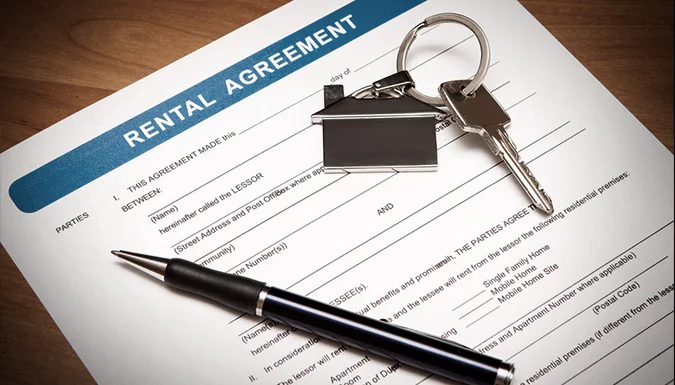Rental disputes have become increasingly common in the UAE. The most common issues between landlord and tenant are unpaid rent, property damage, eviction, security deposit, and increase in rent.
If a dispute is not resolved peacefully, the aggrieved party can approach the rental dispute centre of the emirate where the real estate is located.
The government has established several such centres in the UAE to facilitate the speedy resolution of rental disputes.
In this article, we will provide a comprehensive overview of the rental dispute forums in Dubai and Sharjah.
Rental Dispute Forums Settlement Centre in Dubai
The Rental Dispute Settlement Centre (“RDC”) was established under Decree No. 26 of 2013. RDC deals with rental disputes between landlords and tenants over real estate in Dubai, including the free zones.
However, there are some exceptions which do not come under the purview of RDC, as listed below:
- Rental disputes arising inside the free zones that have special judicial committees or courts competent to settle rental disputes.
- Rental disputes arising from finance lease contracts.
- Disputes arising from long-term lease contracts.
- Hotel Establishments.
- Free accommodation provided by companies to their employees.
RDC consists of two sectors, a Judicial sector and an Administrative sector, to provide technical and administrative support for the judicial sector.
The Judicial sector consists of the following departments:
- Reconciliation Division
- First Instance Division
- Appeal Division
- Execution Division
The Reconciliation Division assists the parties in exploring the possibilities of settlement. If the dispute is settled, the parties sign a reconciliation agreement with the power of an executive instrument. The case is moved to the First Instance Division if a settlement is not reached.
Registration of tenancy contracts with the Real Estate Regulatory Agency
The system for registering tenancy contracts with the Real Estate Regulatory Agency (“RERA”) in Dubai is known as Ejari. Previously, the Dubai Tenancy Law prohibited RDC from considering any disputes arising from those tenancy contracts that were not registered with RERA (i.e., Ejari). However, the law was amended later, and the prohibition was removed.
Increase in Rent
In Dubai, rent can be increased at the time of renewal of the tenancy contract. Decree No. 43 of 2013 on Determination of Rent Increase lays down the maximum rent increase percentage of properties in Dubai depending on the average market rental rate.
A landlord must also issue a 90-day prior notice to the tenant if he intends to increase the rent. If there is a dispute between the landlord and tenant over a rent increase, either party can refer the same to RDC.
Sharjah Rental Dispute Committee
Sharjah Rental Dispute Committee (“SRDC”) deals with conflicts between landlords and tenants for properties based in Sharjah.
Registration of tenancy contracts with Sharjah Municipality:
Unlike Dubai Tenancy Law, SRDC is not empowered to hear cases arising from tenancy contracts not registered with Sharjah Municipality. The Sharjah Tenancy Law provides that the municipality or government departments and institutions shall not accept the presentation of an unregistered lease contract in any dispute, transaction, or service provision.
Increase in rent:
Under Sharjah Tenancy Law, landlords are prohibited from increasing the rent before three years of completion of the tenancy contract (calculated from the date of the signing of the tenancy contract). Furthermore, the rent cannot be increased again until two years have passed from the date of the first increase. However, unlike Dubai Tenancy Law, no maximum percentage is prescribed for rent increase.
DIFC Courts Small Claims Leasing Tribunal:
The DIFC Small Claims Leasing Tribunal (“SCLT”) was established in 2007 and is a part of the DIFC Courts. SCLT is empowered to hear and determine residential and commercial leasing claims for properties located within the Dubai International Financial Centre.
SCLT facilitates the speedy resolution of disputes coupled with reduced litigation costs. In most cases, all the steps can be concluded, and a Judgment can be issued after that in four to five months. Costs of SCLT proceedings are limited due to the following reasons:
- Lawyers are usually not allowed to represent the parties unless permitted by an SCLT judge.
- The judges usually do not allow disclosure/discovery of documents or exchange of witness statements and expert reports.
- The Judges have the discretion to decide the matter on papers only (i.e., without a hearing)
Furthermore, it should be noted that after the exchange of pleadings, the SCLT usually schedules a consultation to help parties explore the possibilities of settlement. A successful settlement at this stage can result in further reduced costs. If the dispute cannot be settled amicably between the parties, the SCLT judge can decide the matter on papers only or schedule a further hearing to resolve the claim. The proceedings in SCLT take place in English, unlike other Dubai mainland courts where the official language is Arabic.
Conclusion:
A quick and efficient way to resolve a rental dispute is for both parties to settle amicably. Navigating the intricacies of rental dispute cases requires more than just knowledge; it demands experience, expertise, and a deep understanding of the local legal landscape. We at SK Legal provide the following services:
- Comprehensive legal consultancy: Whether you are dealing with civil or commercial disputes, our team is equipped to provide you with the best legal advice.
- Support during negotiations: Our legal advisory services extend to assisting clients during crucial negotiations, ensuring their interests are always protected.
- Collaboration with other law firms: We understand the nuances of local jurisdictions. We collaborate with licensed local law firms to oversee court cases, especially in Dubai and Sharjah courts.
For personalized assistance and advice, contact us at [email protected] or fill out the form here.
Frequently Asked Questions about Rental Disputes Forums in Dubai and Sharjah:
What is the process for filing a rental dispute?
Every centre has its own procedure for filing a rental dispute. For example, SCLT follows a different style of pleadings, which is more akin to common law pleadings. The complainant must also ensure that relevant notice has been issued to the other side in the prescribed manner as stated in the respective law.
Several documents are required to register a complaint, such as a tenancy contract, Ejari certificate, Emirates ID of the complainant, rental deposit slips, DEWA bills and other supporting documents, depending on the nature of the dispute.
What is the procedure for filing an appeal against a Judgment issued by the First Instance Division of Dubai Rental Dispute Settlement Centre?
Judgments of the First Instance Division can be appealed only in cases where the annual rent value is above AED 100,000 or in the following cases:
- If an eviction Judgment is issued,
- If a Judgment is issued in violation of the jurisdiction rules,
- If a Judgment is issued with something not requested by the parties, or with more than what they requested, or it disregarded some requests,
- If a Judgment is issued against a person who has not been adequately represented in the action or there was a nullity in the service thereupon,
- If a Judgment is based on papers or documents which were declared to be forgeries after the Judgment was issued or a Judgment of their forgery was issued, or the Judgment was based on a testimony that was judged as a false testimony after the Judgment was issued, and
- If a party to the lease hides data or documents from the First Instance Division, that would have changed the Judgment on the action.
The time to appeal Judgments issued by the First Instance Division is fifteen days from the day following the issuance of the Judgment. To file an appeal, the appealing party must deposit 50% of the judgment amount at the Centre.
How is a Judgment issued by the Dubai Rental Dispute Settlement Centre executed?
All final Judgments issued by First Instance and Appeal Divisions are executed by the Execution Department affiliated with the Centre.
What happens if a tenant wishes to terminate a tenancy contract prematurely?
Under Sharjah Tenancy Law, a tenant can terminate the tenancy contract before its expiry date only upon the occurrence of a force majeure event. Furthermore, in case of early termination, a tenant must compensate the landlord (not less than 30% of the rental price of the remaining tenancy period). The Dubai Tenancy Law does not contain any provision entitling the tenant to terminate the tenancy prematurely unless it is specified in the tenancy contract.
What is the eviction procedure for commercial tenants under Dubai and DIFC Tenancy Law?
Both Dubai Tenancy Law and DIFC Tenancy Law list several circumstances under which a landlord can terminate a commercial lease before the expiry of the tenancy period. For example, non-payment of rent, abandoning the property or failing to comply with the lease agreement terms despite receiving written notice from the landlord.
However, under Dubai Tenancy Law, a landlord is entitled to demand eviction upon expiry of the tenancy period only on limited grounds, such as if the property needs extensive repair and renovation works which cannot be executed while a tenant is occupying the property.
Moreover, if the owner wants to sell or demolish the property, add new buildings, or if the owner requires the property for personal use or for first-degree relatives. In other words, the tenant can automatically renew its lease unless the landlord objects to the renewal on any of the abovementioned grounds.
In case the landlord intends to evict the tenant on any of the above grounds, the landlord will still need to provide the tenant with a notice of eviction through Notary Public at least 12 months before the scheduled eviction date. The notice should clearly mention the ground on which the landlord relies for the tenant’s eviction.
On the other hand, the DIFC Tenancy Law does not provide tenants with an automatic renewal right. The lease agreement must expressly include any right to renew for a successive term. The DIFC Tenancy Law allows the landlord to re-enter the leased premises upon the expiry of the tenancy period.
CONTRIBUTOR

Sameer Khan is one of the Best Legal Consultants in UAE, and Founder and Managing Partner of SK Legal. He has been based in UAE for the past 14 years. During this time, he has successfully provided legal services to several prominent companies and private clients and has advised and represented them on a variety of projects in the UAE.
View all posts


